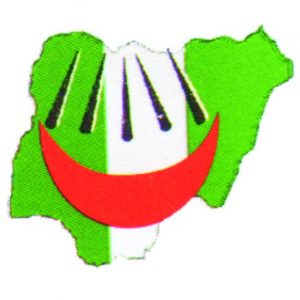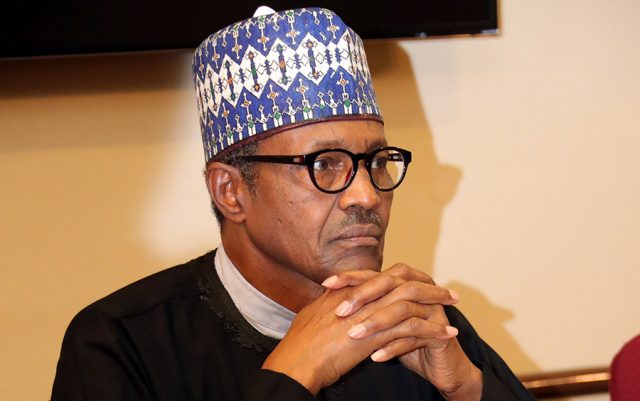By Jeffery Orji
The public trust in the Nigerian government after six years of Buhari’s presidency has continued to nosedive alongside a growing perception of lacking political inclusion. The situation is further made tenser by negative and excruciating economic impacts caused by the covid-19 pandemic, and a sense of undelivered campaign promises. Frustration and discontent have continued to spread very fast among the populace who have already concluded that Buhari’s administration is the worst ever. Not even one of the campaign promises has been effectively executed. Those who know him very well in his first regime warned Nigerians before his election that he will not perform but APC government was carried away by their fight to unseat PDP with Buhari as the flag bearer.
Let us call back our minds to history that insurmountable economic problems plagued Buhari’s first regime as petroleum prices collapsed in the face of expanding foreign debt. Buhari instituted austerity measures that caused severe hardship to the average Nigerian. In addition, political corruption continued unabated with politicians escaping to western countries with millions of dollars in government money. In an effort to stop dissension, Buhari instituted restrictions on the press, political freedom, and trade unionists. By August 1985 even the military couldn’t bear his excesses hence IBB took over the government from him while he was detained in Benin City and was released at the end of 1988.
Sahara Reporters sometime in 2019 via a headline “Buhari, Worst President Nigeria Has Ever Had Since 1999” stated that over 48,000 Nigerians on social media have voted President Muhammadu Buhari as the worst president Nigeria has ever had since the return to democracy in 1999. The organized online polls on Facebook and Twitter asking Nigerians on social media was to select the worst president the country has ever had from the list of Olusegun Obasanjo, Umaru Musa Yar’adua, and Goodluck Jonathan along with the incumbent President Muhammadu Buhari.
As a matter of fact, Major General Buhari came to the national limelight on 31 December 1983 when he became the Head of State after a successful military coup d’etat that overthrew civilian President Shehu Shagari. He ruled Nigeria with General Tunde Idiagbon from January 1984 until August 1985, before his regime was toppled by another coup. His reign is ever remembered for a vigorous campaign against indiscipline and corruption but tainted with human rights abuses.
With the return to democracy in 1999, General Buhari contested presidential elections in 2003, 2007 and 2011, but lost to the Peoples Democratic Party (PDP) candidates. In the 2003 elections, Buhari who was the presidential candidate of the All Nigeria Peoples Party (ANPP) lost to President Olusegun Obasanjo of the PDP. In the 2007 presidential election, Buhari contested again on the ticket of the same party but was beaten by PDP’s Umaru Yar’Adua who scored 26,638,063 to his paltry 6,605,299. In March 2010, Buhari left the ANPP and joined the Congress for Progressive Change (CPC). He contested as the CPC presidential candidate during the 2011 presidential poll, which he lost to President Goodluck Jonathan of the PDP. In that election, Buhari secured 12,214,853 votes against President Jonathan’s 22,495,187.
In 2014 the All Progressives Congress (APC) party nominated Buhari to stand as its candidate in the 2015 presidential election. The APC was a merger of the All Progressives Grand Alliance (APGA), Action Congress of Nigeria (CAN), ANPP, and CPC. General Buhari subsequently emerged victorious in the 28 March 2015 presidential election, defeating incumbent President Jonathan of the PDP. He polled 15,416,221 votes to Mr. Jonathan’s 12,853,162 votes. On 29 May 2015, General Muhammadu Buhari was sworn in as the sixth democratically elected President. His swearing-in made history as Nigeria’s first peaceful and democratic transfer of power from a ruling party to opposition. Having assumed office he once occupied as a military officer and for which he contested four times, his administration is expected to urgently tackle several challenges that have bedeviled Nigeria over the last three decades but the reverse seems the case.
Mr Buhari in 2015 announced plans for the Nigerian military’s command center to be moved from Abuja to the strategic north-eastern city of Maiduguri, which is closer to areas where Boko Haram operates. He said that the Nigerian economy was “in deep trouble”, identifying “insecurity, pervasive corruption and seemingly impossible fuel and power shortages” as key concerns. The country’s power supply crisis was “a national shame”, he said, which had brought darkness, frustration, misery, and resignation to Nigerians. According to him in 2015, his administration will govern Nigeria honestly in accordance with the constitution.
Continuing, he said, “We will strive to secure the country and efficiently the economy. We will attack poverty through broadly shared economic growth and attacking corruption through impartial application of the law. We will turn Nigeria to a position of international respect through patriotic foreign policies. Preserving the nation’s future is a sacred public obligation to all of us in this great party. Shall we at home continue to live in a condition where the power holding company and its successors seem only to have the power to hold us in the darkness? Shall we continue in a situation where 250 of our daughters are being abducted and the government has been unable to rescue them or provide credible information about what step they are taking? Shall we live in a nation where several people were trampled to death in search of jobs in a stadium and yet no one has taken responsibility for the tragedy? He asked
“You are first and foremost a Nigerian in my eyes and I shall treat you equally as my national family, my brothers and sisters. We will be a compassionate government for out of confession arises the truest form of wealth and progress a society can boast of. Our government will institute new policies to realize a new Nigeria. On corruption, the government will enhance EFCC power to investigate independently. Pregnant and poor women and children will be entitled to basic healthcare. And when all is said and done, let it be written that Mohammed Buhari gave his all to this nation” he concluded
Everything stated above sounds very melodious sweeter than honey but six years down the line, none has been scratched let alone executed instead the situation has gotten so unpredictable to the extent of establishing that the security architecture in Nigeria has gotten to zero leaving no value to life. The escalation of terrorist activities is the gravest security challenge facing Nigeria. Particularly worrisome are the activities of the Boko Haram and herdsmen, which seek to impose Islamic law in Nigeria. Since stepping up its activities in 2009, the group has killed over 100, 000 people and displaced about 2.5 million people. And this is largely responsible for Nigeria’s decline from the 7th of 115 countries to the 4th of 121 countries in the Global Terrorism Index. 70 percent of news headlines in Nigeria these days is a report of terrorism and kidnapping deaths. Insecurity is the greatest challenge facing the new administration of President Buhari. Traditional security threats such as violent conflicts, militancy, armed robbery, and kidnapping have assumed worrisome dimensions in Nigeria. Evolving threats such as insurgency and terrorism have further complicated the situation even the security operatives’ count as victims in magnitude dimension. It is estimated that Nigeria has “witnessed over 600 violent ethnoreligious, communal and political conflicts of varying intensity and magnitude.
On the economic front, pervasive poverty and massive unemployment are serious economic challenges facing Nigeria. Both have maintained a rising trend over the years especially in this administration. Poverty rates remain high under Buhari’s watch, particularly in rural areas. It is estimated that 110 million out of Nigeria’s population of 170 million live in “extreme poverty”. Of the 110 million Nigerians suffering from extreme poverty, the majority are young people denied of employment opportunities. The problem of poverty and unemployment in Nigeria results from inconsistent policies, misappropriation of funds for empowerment schemes and increasing de-industrialization, and collapse of small businesses due to epileptic power supply.
Furthermore, an inadequate and unreliable electricity supply is another critical challenge that President Buhari has failed woefully to tackle hence could not enhance the standard of living of the citizens. Despite spending huge US$ billions in the electricity sector, Nigeria is only able to generate 4,000 megawatts of electricity for a population of over 170 million people while South Africa with a population of 52 million people generates 44,000 megawatts.
Corruption which is the root of many of Nigeria’s problems has permeated deeper through public and private life in Nigeria, with degenerative effects on the national value, institutions of governance, and the rule of law. This has grown to an escalating dimension in Buhari’s administration as it seems that he is not even in control. It has become a government of free for all looting, commercialization of justice, and punishment of the masses. The high cost of governance is another issue that people expected him to work but he couldn’t. This is caused by the running of bogus Ministries, Departments, and Agencies that perform overlapping functions, wasteful spending by government officials, and jumbo pay for some elected officials. It was once reported that lawmakers in Nigeria received the highest basic salary of about US$189,500, amounting to 166 times the GDP per capita, while British lawmakers receive basic salaries amounting to about 2.7 times the country’s GDP per capita.
The problem is that the issues facing Africa’s most populous is getting bigger under Buhari’s watch. At the moment some countries like the United States government have issued a travel advisory warning to its citizens against traveling to Nigeria over the worsening security situation in the country. The advisory identified some high-risk zones in the country, where kidnapping for ransom, terrorism, and other security threats are recurrent.
What a government!
Really disgusting.










